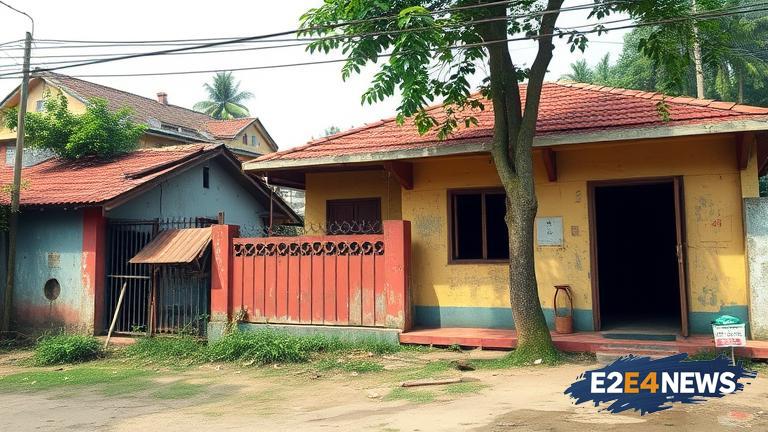In a significant move to address communal violence, a Bangladesh court has sentenced 5 individuals to jail for their role in an attack on Hindu houses in Rangpur. The incident, which occurred in 2020, was part of a larger wave of attacks on Hindu communities across the country. The court’s decision is seen as a major step towards promoting religious harmony and curbing violence against minority communities. The 5 individuals, who were found guilty of vandalism and arson, were sentenced to varying terms of imprisonment. The court’s verdict was welcomed by Hindu community leaders, who have long been advocating for greater protection and justice for their community. The attack on Hindu houses in Rangpur was widely condemned by civil society groups and human rights organizations, who called for swift action against the perpetrators. The incident highlighted the need for greater efforts to promote interfaith understanding and tolerance in Bangladesh. The government has been working to address the root causes of communal violence, including poverty, lack of education, and social inequality. The court’s decision is expected to send a strong message to those who engage in communal violence, and to reassure minority communities that they will be protected and supported. The incident has also sparked a wider debate about the need for greater religious tolerance and understanding in Bangladesh. Many have called for increased efforts to promote interfaith dialogue and education, in order to break down barriers and build bridges between different communities. The government has announced plans to launch a new initiative to promote religious harmony and tolerance, which will include education and outreach programs. The initiative is expected to be launched in the coming months, and will be implemented in partnership with civil society groups and community leaders. The attack on Hindu houses in Rangpur was not an isolated incident, but rather part of a larger pattern of communal violence in Bangladesh. In recent years, there have been numerous reports of attacks on Hindu and other minority communities, including Buddhists and Christians. The government has faced criticism for its handling of these incidents, with many arguing that more needs to be done to prevent and respond to communal violence. The court’s decision is seen as a positive step towards addressing these concerns, and towards promoting greater justice and accountability for victims of communal violence. The incident has also highlighted the need for greater support and protection for minority communities, including access to education, employment, and healthcare. Many minority communities in Bangladesh face significant challenges and barriers, including poverty, lack of access to education and employment, and social exclusion. The government has announced plans to launch a new initiative to support minority communities, which will include education and job training programs, as well as support for small businesses and entrepreneurs. The initiative is expected to be launched in the coming months, and will be implemented in partnership with civil society groups and community leaders. Overall, the court’s decision is a significant step towards promoting religious harmony and curbing communal violence in Bangladesh. It is expected to send a strong message to those who engage in communal violence, and to reassure minority communities that they will be protected and supported. The incident has also sparked a wider debate about the need for greater religious tolerance and understanding in Bangladesh, and has highlighted the need for increased efforts to promote interfaith dialogue and education.
